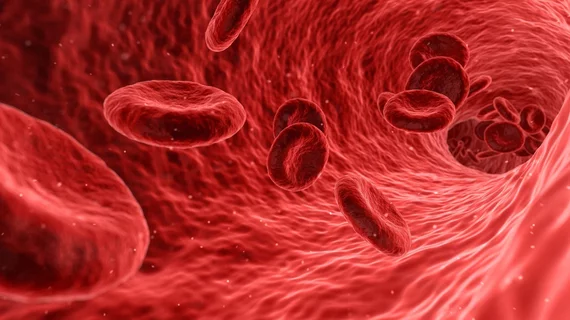Meet the RNA molecule that guards against vascular disease
Researchers believe they’ve identified a molecule of RNA that helps protect a person’s blood vessel walls from vascular diseases such as atherosclerosis, sharing their findings in Circulation.
Abundant amounts of the molecule in question, CARMN, are seen in healthy muscle cells that keep blood vessels strong and flexible. However, the study’s authors explained, diminished CARMN levels are seen in damaged blood vessels susceptible to atherosclerosis and other harmful diseases that can lead to myocardial infarction, stroke or even death.
“If you have a low level of CARMN, it mostly likely predisposes you to a higher susceptibility to get atherosclerosis or angioplasty-induced restenosis,” senior author Jiliang Zhou, PhD, a vascular biologist at the Medical College of Georgia at Augusta University, said in a prepared statement. “If CARMN is downregulated, it will induce or trigger those smooth muscle cells to become unhealthy or diseased.”
Zhou’s team examined both human tissue and rodent models to reach its conclusions. CARMN was consistently seen in large amounts in “smooth” muscle cells, working to increase the activity of the protein myocardin. Also, cardiomyocytes express CARMN while the heart is developing, yet another sign that these molecules are playing a pivotal role in keeping the body’s cardiovascular system up and running.
Zhou et al. hope to learn more about this relationship. They aim to study the potential benefits of exercise on increasing CARMN levels, for instance, and what happens to CARMN expression as a person ages.
Read the team’s full analysis in Circulation here.

